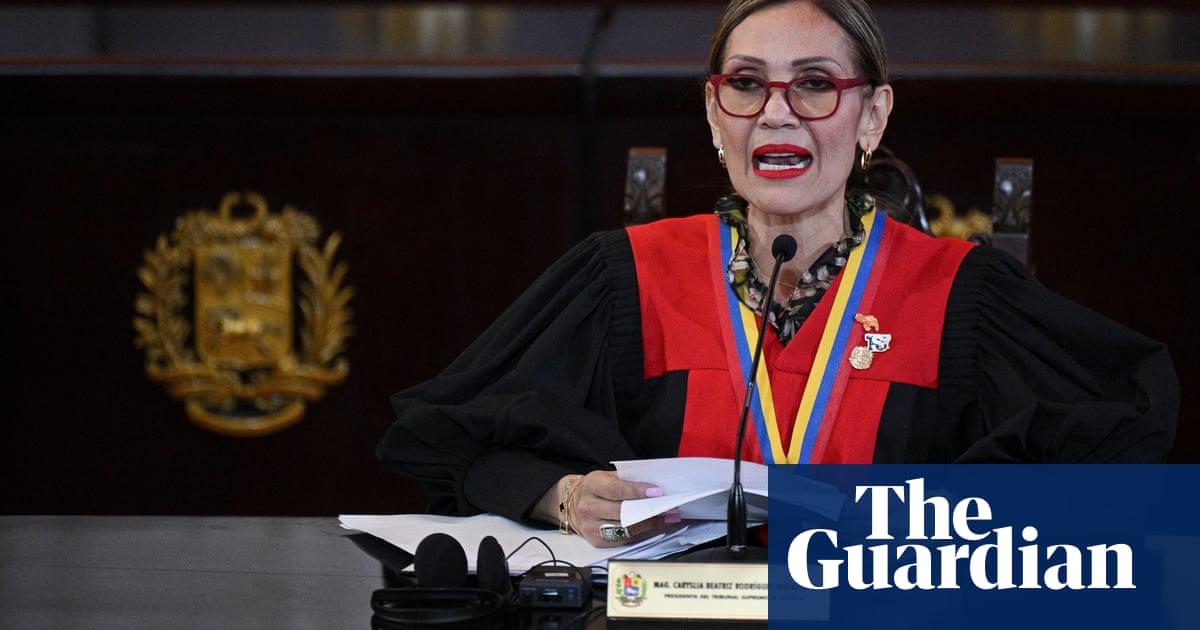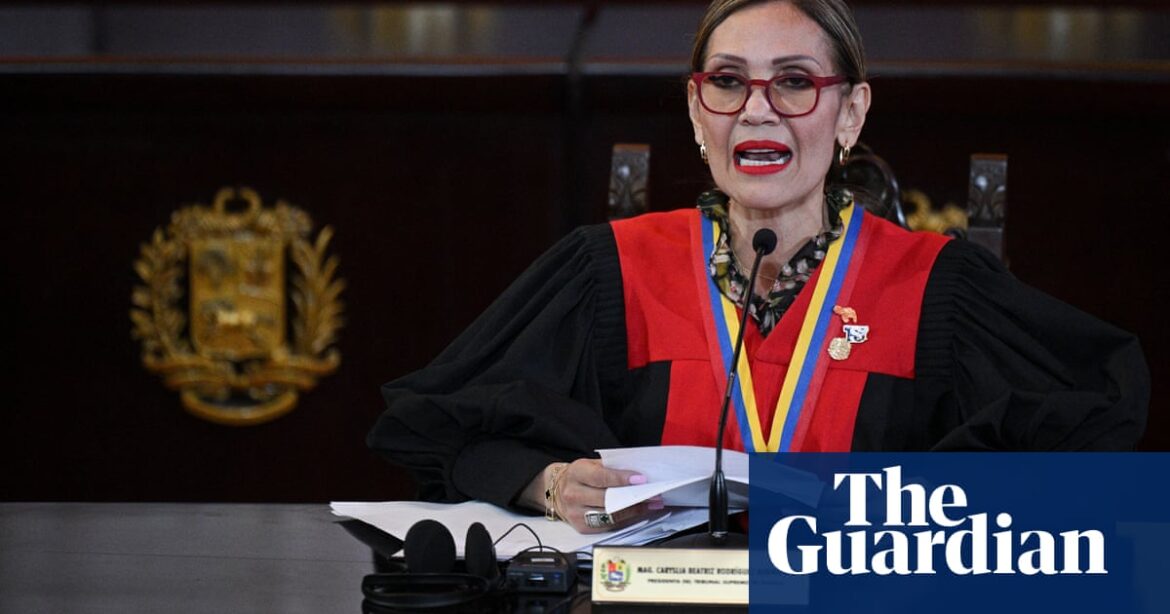
Venezuela’s president Nicolás Maduro is facing a growing chorus of international outrage after the government-controlled supreme court endorsed his disputed claim to have won the presidential election.
Venezuela’s opposition has claimed Maduro tried to steal the 28 July election and has produced compelling evidence that its candidate, Edmundo González, was the winner.
Even countries such as Brazil and Colombia, whose leftwing leaders have longstanding ties to Maduro’s Chavista political movement, have refused to recognise his victory until detailed voting data is published.
On Thursday, Venezuela’s supreme court publicly certified Maduro’s supposed triumph, which would give the incumbent another six-year term. During a televised announcement, its president, Caryslia Beatriz Rodríguez Rodríguez, declared his re-election “indisputable” and called the court’s verdict “definitive”.
“Nothing will stop us in our sacred mission [of upholding the law],” Rodríguez, who is a member of Maduro’s ruling Socialist party, said in her 30-minute speech.
The court did not divulge any detailed voting data on which its ruling was based.
The decision prompted a flood of anger and criticism.
Gabriel Boric, Chile’s progressive president, accused Venezuela’s supreme court of “consolidating the fraud” allegedly perpetrated by Maduro after the recent election.
“Chile does not recognise this false, auto-proclaimed triumph of Maduro and co,” Boric wrote on X, voicing solidarity with the Venezuelans fighting for “democracy, justice and freedom”.
“Venezuela’s dictatorship is not the left,” he said.
The president of Uruguay, Luis Lacalle Pou, said: “The Maduro regime confirms what the international community has been denouncing: fraud.”
Lacalle said the move revealed “a dictatorship that closes all doors to an institutional and democratic life for its people”. “We must not remain silent or cease in defence of the Venezuelan cause,” he added.
Juanita Goebertus, the director of Human Rights Watch in the Americas, called the ruling “a crude attempt to judicially cover up electoral fraud”.
“The court is not impartial or independent,” Goebertus said, calling on the international community to continue demanding a credible and impartial evaluation of voting data.
Andrés Izarra, a former Maduro minister who now lives in exile, denounced what he called “a coup”. “No country will accept this judgment. And nor will the Venezuelan people,” he said.
Maduro’s rival in the election, González, rejected the verdict, calling it “null and void”.
After the court’s decision was announced, Maduro’s ministers and allies lined up to be interviewed on state television to declare the election crisis over.
The attorney general, Tarek William Saab, hailed what he called “a sublime and historic” moment. The foreign minister, Yván Gil, claimed the ruling “closes a chapter in Venezuela’s 28 July electoral process” and showed that the constitution had triumphed.
Maduro’s communications minister, Freddy Ñáñez, called the ruling a “happy ending” for Venezuelan people. “This will go down in history as an episode of the highest democratic order,” Ñáñez said. “I feel very content and I am absolutely certain that this is the mood on the streets.”
But the move looks almost certain to aggravate the crisis. Some fear that the political standoff could lead to bloodshed or even conflict.
“Somehow I don’t think saying ‘we won, just trust us’ is going to fix Maduro’s problem,” tweeted Geoff Ramsey, a Venezuela specialist at the Arsht Latin America Center.
Maduro’s administration has cracked down hard on dissenters since his claim of victory sparked two days of protests involving many of the poor communities that for years were loyal to his movement and its founder, Hugo Chávez. More than 20 people have been killed and more than 1,500 arrested.
Gonzalo Himiob, a human rights activist whose group, Foro Penal, is documenting the roundup of government opponents, said most of those targeted were from working-class areas.
“The government is sending them a message: ‘If you didn’t vote for us, you are now an enemy – and we can do whatever we want to our enemies,’” Himiob said.
Despite the pro-government court’s judgment, a growing body of evidence supports the opposition’s claim to have inflicted a severe defeat on Maduro, whose 11-year rule has coincided with a historic depression exacerbated by US sanctions.
One study, published by the political scientist and Latin America expert Dorothy Kronick, concluded that the voting data released by the opposition “almost certainly reflects actual votes cast”.
The security and sophistication of Venezuela’s electronic voting system was such that “even extraordinary levels of organisational prowess, conspiratorial acumen and resources could not perpetrate tally fraud that would produce the [opposition] campaign data without leaving traces in the paper trail – traces that, at least as of this writing, have not appeared,” argued Kronick, from the University of California, Berkeley.
Speaking after Thursday’s decision, Kronick said her findings were “not consistent with what we just heard from the supreme court”.
She added: “All the evidence points in the direction of this data that the [opposition] campaign published [being] valid and reflecting the votes cast on election day, which would mean that González won in a landslide.”
Source: theguardian.com



